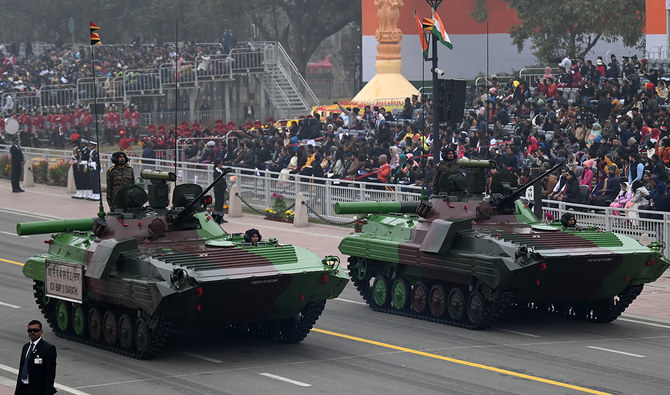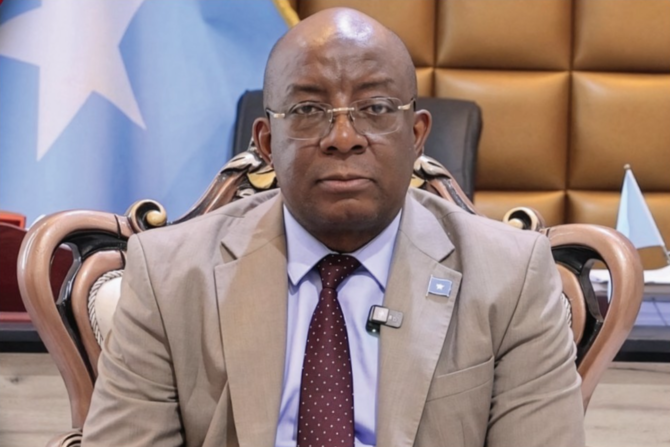NEW DELHI: India proposed on Wednesday 5.94 trillion rupees ($72.6 billion) in defense spending for the 2023-24 financial year, 13 percent up from the previous period’s initial estimates, aiming to add more fighter jets and roads along its tense border with China.
Finance Minister Nirmala Sitharaman allocated 1.63 trillion rupees for defense capital outlays — an expenditure that would include new weapons, aircraft, warships and other military hardware, as she unveiled nearly $550 billion of total federal spending in the annual budget for 2023-24 starting in April.
She said 2.77 trillion rupees would be devoted to military salaries and benefits in 2023-24, 1.38 trillion on pensions for retired soldiers, and further amounts for miscellaneous items.
Sitharaman also revised the defense budget for the current financial year ending in March to 5.85 trillion rupees from earlier estimates of 5.25 trillion.
In the past few years, Prime Minister Narendra Modi has ramped up spending to modernize the military, while underlining his government’s commitment to boosting domestic production to supply forces deployed along two contentious borders.
Laxman Behera, a defense expert at government-funded Jawaharlal Nehru University in New Delhi, said the hike in the defense budget was “reasonable but not sufficient,” considering requirements for military modernization.
“The government has tried to allocate reasonable funds for defense forces while balancing other priorities during the pre-election budget,” he said, noting India needed more funds in view of growing friction with China along disputed borders.
The total Indian defense budget, estimated at about 2 percent of GDP, is still lower than China’s 1.45 trillion yuan ($230 billion) in allocations for 2022, which New Delhi sees as posing a threat to neighbors including India and Japan.
“The overall increase in the armed forces’ budget is as anticipated, but likely lower than what they asked for to beef up operational capabilities,” said Amit Cowshish, former financial adviser for acquisitions at the Defense Ministry.
India plans to spend near 242 billion rupees ($3 billion) for naval fleet construction and 571.4 billion rupees ($7 billion) for air force procurements including more aircraft, the latest budget document showed.
The South Asian giant employs 1.38 million people in its armed forces, with large numbers deployed along borders with nuclear-armed rivals China and Pakistan.
Although the defense budget allocations fell short of military expectations, they are likely to grow as the economy recovers from two years of pandemic curbs, according to Behera.
India and China share a 3,500-kilometer (2,100-mile) frontier that has been disputed since the 1950s. The two sides went to war over it in 1962.
At least 24 soldiers were killed when the armies of the Asian giants clashed in Ladakh, in the western Himalayas, in 2020 but tensions eased after military and diplomatic talks.
A fresh clash erupted in the eastern Himalayas in December last year but no deaths were reported.











